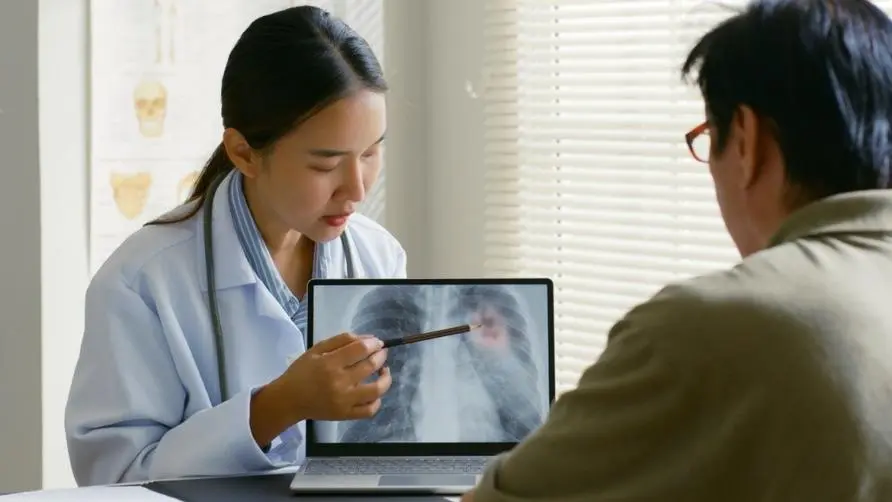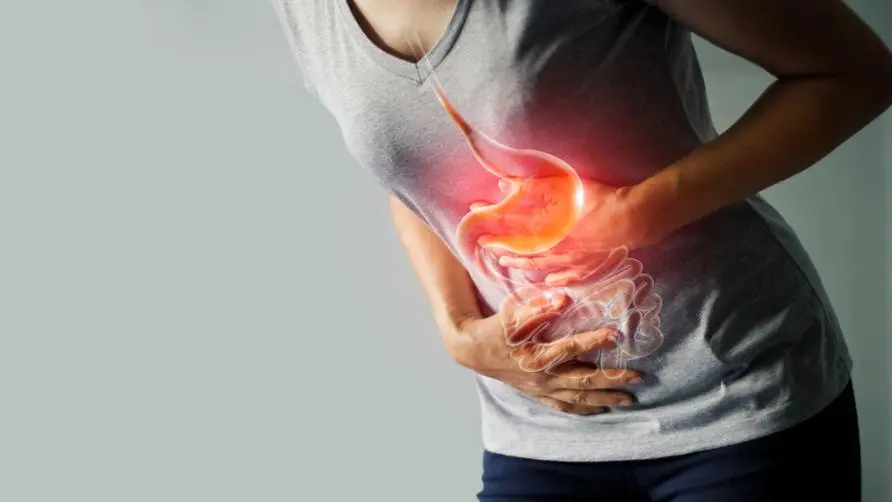AI knows all about whether there are colorectal cancer lesions! Endoscopy with auxiliary diagnosis uncovers potential "4 threats" to the intestinal tract

Colorectal cancer has ranked first in the cancer incidence rate in Taiwan for 15 consecutive years. New treatment methods are urgently needed to ensure patients’ health and the stability of their gastrointestinal tract function. The Taipei Veterans General Hospital Endoscopy Diagnosis and Treatment Center team combined AI imaging to develop the “Intestinal Endoscopy Multi-modal Auxiliary Diagnosis System”, which can not only intelligently identify polyps, but also identify a variety of different large intestine lesions at the same time, with high accuracy The research results reached more than 90%, and the research results were published in the well-known international endoscopy journal “Surgical Endoscopy”.
AI can tell whether there are lesions at a glance? New technology helps identify colorectal cancer cells and colorectal polyps
Dr. Lu Junliang, attending physician at the Department of Gastrointestinal Hepatobiliary and Director of the Endoscopy Center at Taipei Veterans General Hospital, said that using AI artificial intelligence to assist endoscopists in diagnosing clinical diseases has become a hot trend in the medical field. It is important to reuse this system. Optimizing and building a more rigorous system will help improve inspection quality.
Dr. Lu Junliang pointed out that the “Intestinal Endoscopy Multimodal Auxiliary Diagnosis System” interface can display red signals in four corners according to different lesions: cancer in the upper left, diverticulum in the upper right, and ileocecal valve in the lower left (using To identify the junction of the rectum and the small intestine using proctoscopy), the lower right corner is the polyp. In addition, the AI recognition system can also display the confidence level of the predicted lesions and the moving speed of the colonoscope on the information screen.
Dr. Lu Junliang said that the concept of “smart medical care” is currently introduced in the clinic, which can not only reduce patients’ waiting time for examination and improve patient satisfaction, but also effectively divert patients and cooperate with epidemic prevention. In addition, in order to improve medical safety, the clinic has developed a cloud management system to effectively manage medical material expiration date, batch number and other information, and intelligently integrate medical records to facilitate traceability; finally, it promotes “paperless anesthesia recovery room” and automatically brings Remind the nursing staff of patient inspection and treatment items and shift handover precautions.
Remember in your daily life that “two more and one less should be screened” to effectively prevent the risk of colorectal cancer
In addition to precise treatment reducing the risk of severe illness and death, healthy living habits can also help reduce the risk of colorectal cancer. Taiwan Ministry of Health and Welfare, Health Promotion Administration stated that there are many risk factors for colorectal cancer, most of which are related to lifestyle, including obesity, high-fat food, red meat, low-fiber diet, smoking and drinking, etc. Among them, “two more and one less”: more exercise, more fruits and vegetables, less red meat, and regular colorectal cancer screening are the four major strategies to prevent colorectal cancer.
Taiwan Health Promotion Administration further explains the 4 strategies as follows:
Exercise more: Obese people are 1-2 times more likely to develop colorectal cancer than the average person, and 21-25% of colorectal cancers can be attributed to lack of physical activity. In response to the raging new coronavirus, the public is encouraged to develop good exercise habits to prevent cancer and epidemics through exercise.
Eat more fruits and vegetables: It is recommended to eat 3 servings of vegetables and 2 servings of fruits every day. One serving of vegetables is about half a cooked rice bowl; one serving of fruit is equivalent to the size of a fist. Various vegetables contain vitamin A, vitamin C, iron, calcium, phytochemicals and other nutrients; the dietary fiber in them can maintain intestinal health and enhance resistance to pathogens waiting to invade.
Less red meat: The International Agency for Cancer points out that consuming more than 50 grams of processed meat or 100 grams of red meat (pig, sheep, cattle) per day will increase the risk of colorectal cancer by 17%.
Screening is required: The Taiwan Health Promotion Administration subsidizes fecal occult blood tests for people aged 50-75 every two years. The test is non-invasive, does not cause pain, and there is no need to restrict diet before the test. You only need to use a stool collection stick to scrape the specimen and send it back to the testing unit, and you can wait for the screening results. Data show that about 50% of those who test positive for fecal occult blood have colorectal polyps, and 1 in 22 people has colorectal cancer. Fecal occult blood screening once every two years can reduce mortality by 23%.
Source:
Further reading:





